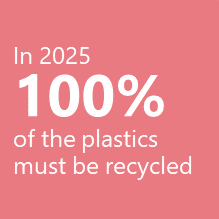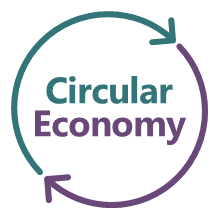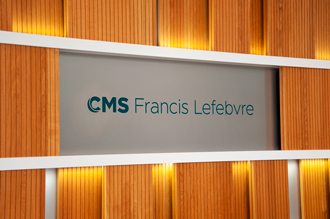In order to meet the requirements set at European level1 for reducing plastic, the Anti-Wastage & Circular Economy Law lays down the principle according to which France has set itself the objective of ending putting single-use plastic packaging on the market by 2040.
In this perspective, France adopts a national vision aimed at increasing the share of reused packaging put on the market compared to single-use packaging, so as to meet the following targets:
|
| 2023: - a proportion of 5% of reused packaging put on the market, and 10% in 2027;
2025: - 100% of the plastics must be recycled;
- 77% of plastic bottles for beverages will have to be collected, and 90% in 2029;
|
To achieve this, the Anti-Wastage & Circular Economy Law plans several more or less restrictive measures.
Progressive ban on single-use plastic
For several years the legislator has organised the end of the provision free of charge or for consideration of certain plastic products. Indeed, Article L. 541-15-10 of the Environmental Code specifies that it is prohibited to provide, in particular:
- since 1 January 2016: single-use plastic checkout bags for packing goods at the point of sale;
- since 1 January 2017: single-use plastic bags for packing goods at the point of sale other than checkout bags, except for compostable bags for domestic composting and made, in whole or in part, from biosourced materials;
- since 1 January 2020: disposable kitchen cups, glasses and plates for dining.
These provisions were specified in particular by Decree no. 2019-1451 of 24 December 2019 on the prohibition on certain single-use plastic products.
The Anti-Wastage & Circular Economy Law confirms and expands this list of prohibitions by including, in particular:
- as of now: the production, distribution, sale, provision and use of packaging or bags made, in whole or in part, from oxo-degradable plastic2;
- from 1 January 2021: the provision of straws, plastic confetti, steak markers, disposable glass lids, plates other than those prohibited since 1 January 2020 (see above), cutlery, beverage stirrers, expanded polystyrene containers or recipients intended for on-site or on-the-go consumption (such as kebab boxes), expanded polystyrene bottles for drinks as well as sticks to support balloons and their mechanisms;
- from 1 January 2022: the putting on the market of non-biodegradable plastic tea or herbal tea bags.
A National Pact on plastic packaging was signed on 21 February 2019 by the Government, 13 companies3 and two non-governmental organisations4 urging them in particular : to "draw up a list of packaging to be designated as problematic or unnecessary and for which measures for their elimination should be taken” , to “collectively reach 60% recycled plastic packaging by 2022” , to “eco-design packaging to make it reusable, recyclable or 100% compostable by 2025”, as well as to carry out campaigns to raise awareness among the general public
Measures to reduce plastic
The Anti-Wastage & Circular Economy Law also includes measures, either incentive-based or binding, aimed at limiting the use of plastic:
Public buildings5 and premises for professional use will no longer be able to freely distribute plastic bottles containing drinks, it being further specified that from 1 January 2022, public buildings will have to be fitted with at least one drinking water fountain accessible to the public
- all retailers must display unprocessed fresh fruit and vegetables without plastic packaging, except when they are packaged in batches of at least 1.5 kg;
- retail stores with a sales area of more than 400 m² are required to provide their customers with clean containers suitable for reuse or further use and accept that consumers provide their own container;the crockery used in home meal delivery services must be reused and must therefore be collected;
- press publications and advertisements must be sent without plastic packaging;
- plastic toys may no longer be provided, free of charge, with menus for children.
All catering establishments (including "fast food") must provide their customers with reusable crockery for meals served on site.
The ban on microplastics will be extended to in vitro medical devices, to all rinse-off cosmetics from 1 January 2026, then to cleaning products and those covered by the restriction proposal of the European Chemicals Agency from 1 January 2027.
Finally, a deposit system for recycling plastic bottles, which has been debated at length by both chambers of Parliament, could be implemented, but after 2023.
1 See in particular Directive 2019/904 of 5 June 2019, on reducing the impact of certain plastic products on the environment.
2 Oxo-degradable plastic" is defined by Article 3 of Directive 2019/904 mentioned above as follows: "Plastic materials that include additives which, through oxidation, lead to the fragmentation of the plastic material into micro-fragments or to chemical decomposition"
3 Auchan Retail France, Biscuits Bouvard, Carrefour, Casino, Coca-Cola European Partners, Danone, Franprix, L’Oréal, LSDH, Monoprix, Nestlé France, Système-U, Unilever.
4 Tara Expériditions and WWF France.
5 Within the meaning of article R. 123-2 of the Construction and Housing Code.
Related topic:
Anti-wastage and Circular Economy Law
|
| Find all our analysis of the main measures of the Anti-Wastage and Circular Economy Law below: |
Find more about our law firm:
Our law firm is a leading international business law firm. Its deep roots, unique positioning and highly recognised expertise enables it to deliver innovative, high value-added solutions in tax, business, corporate and labour law.












%20(3)%20(1).jpg?v=2)





Social Media cookies collect information about you sharing information from our website via social media tools, or analytics to understand your browsing between social media tools or our Social Media campaigns and our own websites. We do this to optimise the mix of channels to provide you with our content. Details concerning the tools in use are in our privacy policy.